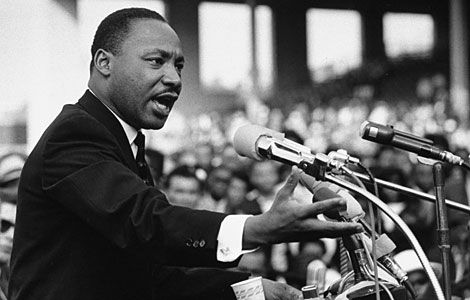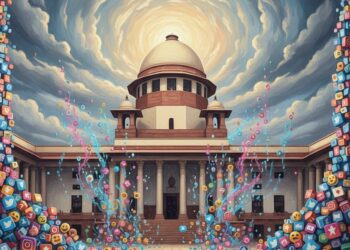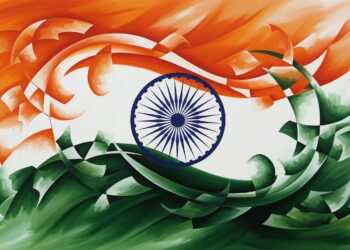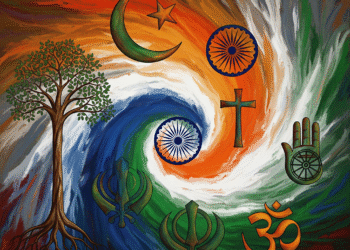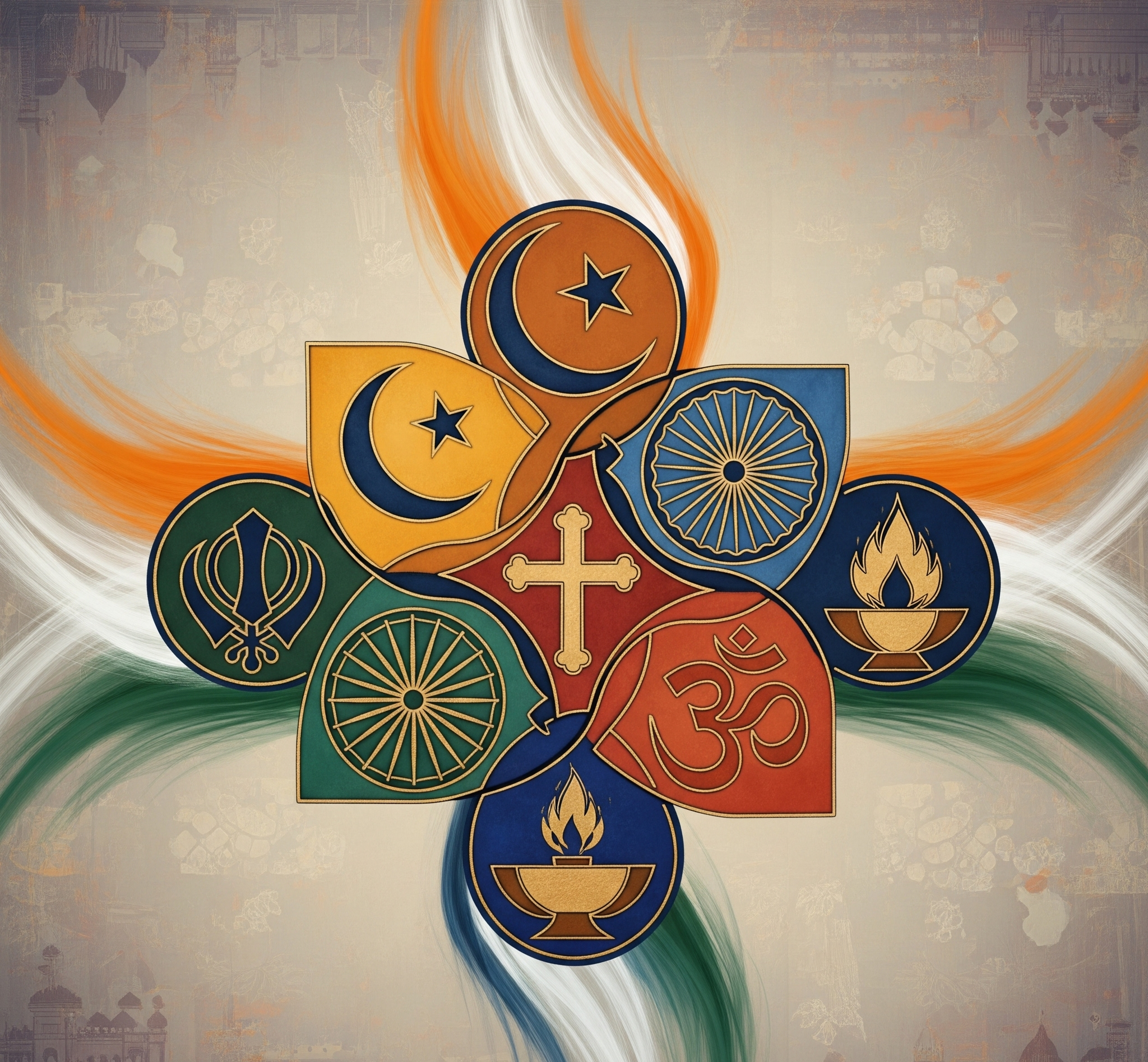“All I’m saying is simply this, that all life is inter-related, that somehow we’re caught in an inescapable network of mutuality tied in a single garment of destiny. Whatever affects one directly affects all indirectly. For some strange reason, I can never be what I ought to be until you are what you ought to be. You can never be what you ought to be until I am what I ought to be. This is the inter-related structure of reality,” said Martin Luther King, Jr. In the history of the United States, King has been one of the most influential figures, being one of those who changed the course of American history almost single-handedly. King led the American Civil Rights Movement for racial equality from the front, and whatever the African-Americans living in the United States have in the name of racial equality came from the unrelenting struggle that Martin Luther King led in pursuance of his famous ‘Dream’ that he shared on August 28, 1963 in his famous speech ‘I Have A Dream’.
I have a dream that one day this nation will rise up and live out the true meaning of its creed: “We hold these truths to be self-evident, that all men are created equal.”
I have a dream that one day on the red hills of Georgia, the sons of former slaves and the sons of former slave owners will be able to sit down together at the table of brotherhood.
I have a dream that one day even the state of Mississippi, a state sweltering with the heat of injustice, sweltering with the heat of oppression, will be transformed into an oasis of freedom and justice.
I have a dream that my four little children will one day live in a nation where they will not be judged by the color of their skin but by the content of their character.
The 17-minute speech is regarded as one of the finest speeches ever delivered anywhere in the world.
Martin Luther King Jr. was born on January 15, 1929 in Atlanta, Georgia, in a family of Baptist preachers and activists. Both his father and grandfather were not only Baptist preachers but also took active part in the civil rights movement. After graduating from Morehouse College in 1948, King considered both medicine and law as careers, but finally chose to study at Crozer Theological Seminary in Pennsylvania. After attending a lecture on Mahatma Gandhi and his non-violent, civil disobedience movement, King was deeply interested in Gandhi’s philosophy and for the next few months he went about reading several books on Gandhi and his ideas. Each book increasingly convinced him that the non-violent methods that Gandhi used to drive the British out of India were the most effective methods to secure civil rights for the Black in the US. Mahatma Gandhi’s words “Through our pain we will make them see their injustice” left an indelible impression on King. Henry David Thoreau’s theory about using non-violent resistance to engineer social change also influenced King to a large extent.
However, a major development in the American Civil Right Movement came with the Montgomery Bus Boycott, which occurred on account of one Rosa Parks’ arrest for refusing to give up her seat for a white man in accordance with the city laws on December 1, 1955. A similar incident had occurred on March 2, 1955 when a 15-year-old schoolgirl, Claudette Colvin, had declined to let a white man have her seat in accordance with the Jim Crow Laws. She was arrested on her refusal, handcuffed and forcibly removed from the bus. She was tried and convicted of violating the segregation laws in force. When the case took place King was part of the committee from the Birmingham African-American community that dealt with the case at their level, but the case was not as forcefully backed primarily because at the time of arrest Colvin was pregnant and also unmarried. Therefore, the leaders of the African-American community decided to wait for a fitter case to espouse, and Parks’ was exactly the kind of case that they had been waiting for.
 The racial segregation in the Montgomery buses worked with the white people filling the bus from front to back whereas the black people occupying the rows from the back to the front and the two sections would meet at the center filling the bus completely. Once the bus was full, any black person entering the bus would have to stand, but if a white entered the bus, every single person in the black row nearest the front had to get up and stand so as to allow a new row for the white. The black people were often required to pay at the front, get down and board the bus again through a separate door at the back of the bus. And many a time the driver would drive away before a black passenger could re-board the bus from the backdoor after making the payment.
The racial segregation in the Montgomery buses worked with the white people filling the bus from front to back whereas the black people occupying the rows from the back to the front and the two sections would meet at the center filling the bus completely. Once the bus was full, any black person entering the bus would have to stand, but if a white entered the bus, every single person in the black row nearest the front had to get up and stand so as to allow a new row for the white. The black people were often required to pay at the front, get down and board the bus again through a separate door at the back of the bus. And many a time the driver would drive away before a black passenger could re-board the bus from the backdoor after making the payment.
Dissatisfaction against the segregation had already peaked and before Rosa Parks’ arrest, E.D. Nixon, President of the local chapter of the National Association for the Advancement of Colored People (NAACP), had already started making preparations to launch a movement against the segregation. But they were waiting for the right person to be arrested. Parks was the right person because of her marital status, employment and her good standing in the black community.
After Parks’ arrest and before her trial, Nixon had a meeting with Ralph Abernathy and Rev. E.N. French in order to decide a name for the association to lead the boycott and also choose the person to lead it. They decided to call it ‘Montgomery Improvement Association’ (MIA) and Nixon chose King to lead the boycott primarily because King was new to Montgomery and the local fathers did not have much influence upon him. However, when the larger meetings of the ministers took place the clergymen were reluctant to support the boycott, but King stood by Nixon and agreed to lead the MIA with Nixon as its treasurer.
The Montgomery Bus Boycott began. It must have been difficult for the King to imagine how hugely successful this effort was going to be, and how great a position it would hold in the Civil Rights Movement. The Boycott shot King into national limelight and turned him into the gigantic civil rights figure that the world now sees him as.
Originally written for and published in LAWYERS UPDATE in three parts as a part of ‘THE LAW AND THE CELEBRITIES‘ series in July 2012.

